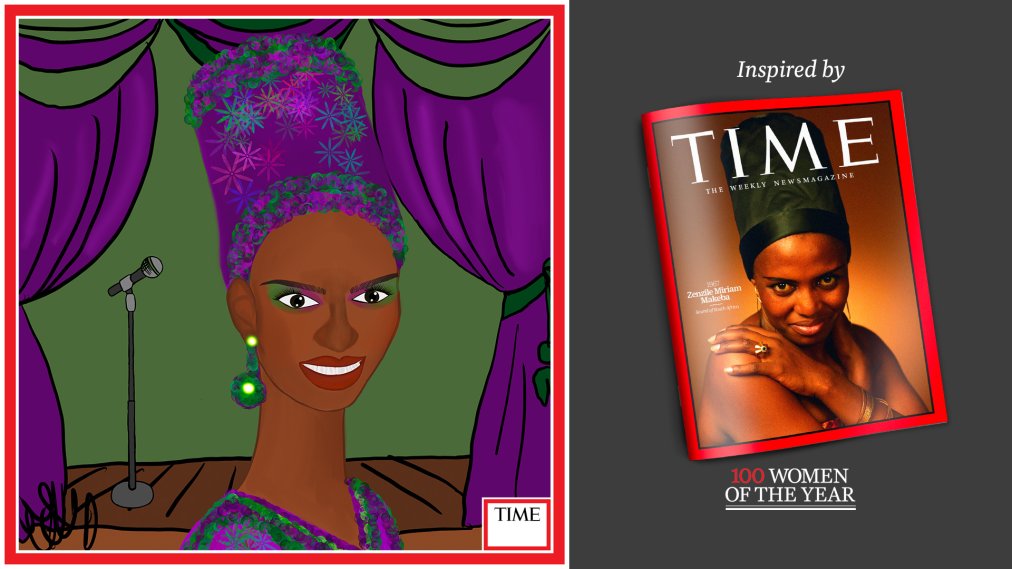The first African to win a Grammy award, the mother of Africa: Who is Miriam Makeba?
Miriam Makeba, who appeared on the cover of Time magazine in 1967, is a South African singer and activist. When you listen to her songs, you feel Africa, its people, and its culture. Her best-known song is Pata Pata, recorded in 1957 and released in the United States in 1967.

My favorite song is Khawuleza. Khawuleza is a word meaning run away. The song tells how children living in the slums say to their mothers "How many mothers - Khawuleza Mama" when they see white police officers.
Besides being a great singer, Makeba was a human rights activist. The passport of Makeba, who was against and fought against the racist apartheid system implemented in the Republic of South Africa between 1948 and 1991, was canceled in 1960. In 1963, her citizenship was revoked and her right to return to her country was taken away. Makeba was able to return to her country only in 1990.
Zenzile Miriam Makeba (4 March 1932 – 9 November 2008), nicknamed Mama Africa, was a South African singer, songwriter, actress, and civil rights activist. Associated with musical genres including Afropop, jazz, and world music, she was an advocate against apartheid and white-minority government in South Africa.
What brought the name Makabe to the agenda again was the song Makeba by the young French talent Jain. The song's lyrics, music, and interesting video clip are endearing. The song is a very good combination of both African and electronic music rhythms. Every time I listen to this song, my desire to see Africa arises within me, and then I find myself dreaming of going to various places in Africa.
A moment of silence for Miriam Makeba
'Makeba' is included in Jain's album 'Zanaka', released in 2016. Her full name, Jeanne Louise Galice, aka Jain, actually has no roots in the Middle East or Africa. However, her closeness to these lands led the French musician to research these lands and inspire its art.
The song 'Makeba' is also a reflection of this interest. We begin to see this tribute with the street name sign in the opening sequence of the music video of the song dedicated to South African musician and human rights defender Miriam Makeba. Miriam Makeba, who was born in Johannesburg in 1932, is a name who devoted her life to fighting racial discrimination in the land of her birth. Just like Nelson Mandela, she fought apartheid. Miriam Makeba, also known as the diva of her country, South Africa, was exiled from her homeland and stripped of her citizenship in 1960 due to her anti-apartheid stance.
First African to win a Grammy award
Miriam Makeba, also known as the diva of her country, South Africa, was exiled from her homeland and stripped of her citizenship in 1960 due to her anti-apartheid stance. After this incident, Makeba was protected by different countries of the world. The diva, who spent most of her life in exile, became the first African to win a Grammy award with her album 'An Evening with Harry Belafonte and Miriam Makeba'.
Miriam Makeba, who has released more than 30 albums throughout her musical career, also represented the African country Guinea at the United Nations General Assembly for a while. The South African artist, who was banned from entering the United States due to her marriage to Stokely Carmichael, spent the last years of her life in Italy. Diva died of a heart attack in 2008, at a concert in support of the writer Roberto Saviano, who was targeted by the mafia. The star, who spent most of her life in exile, was able to return to her country after 30 years of longing.
